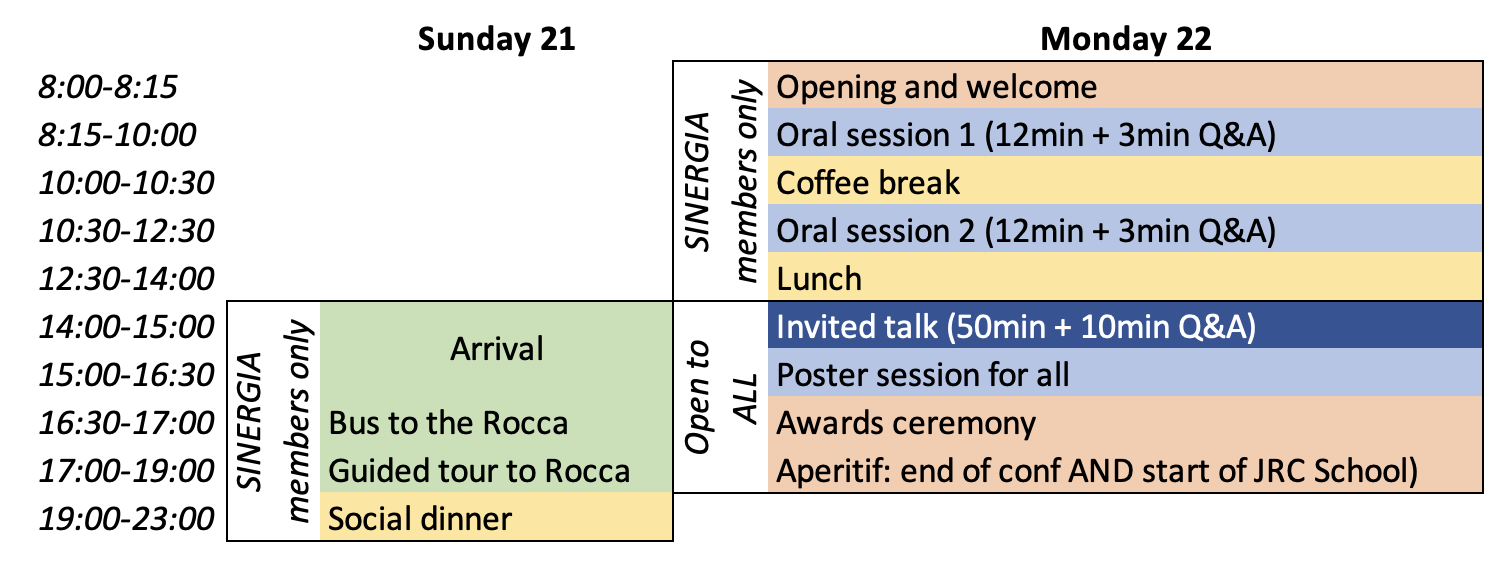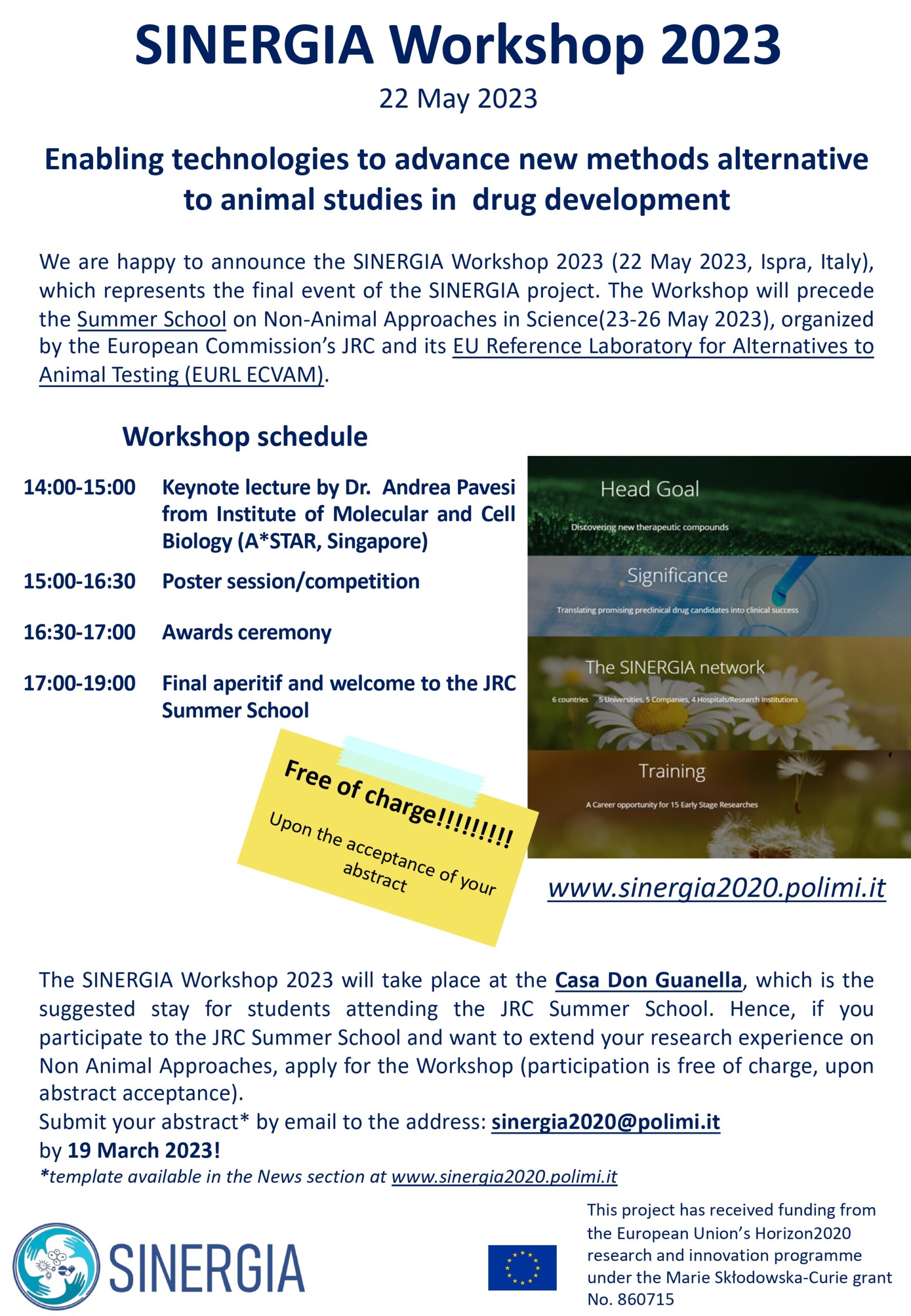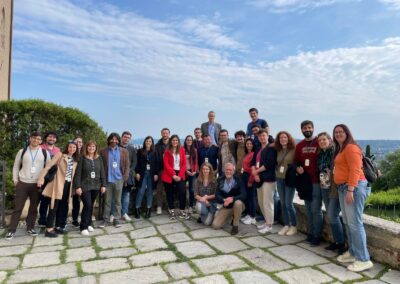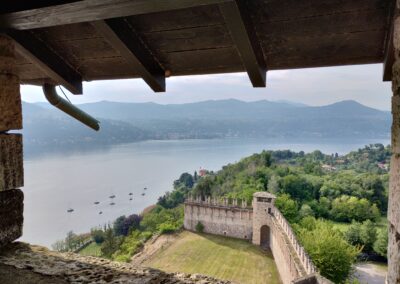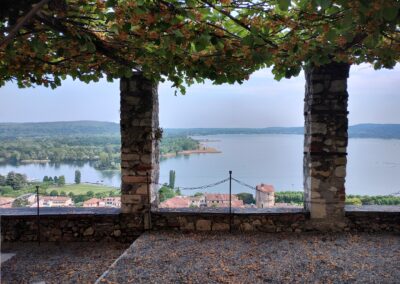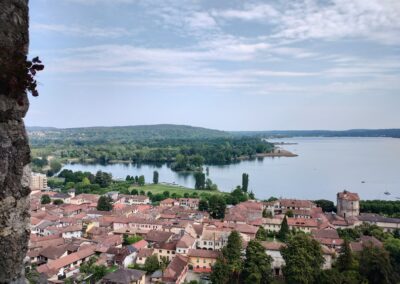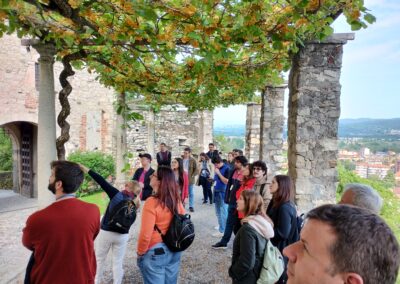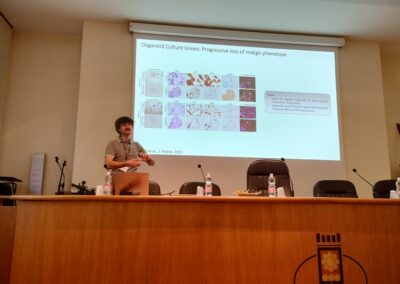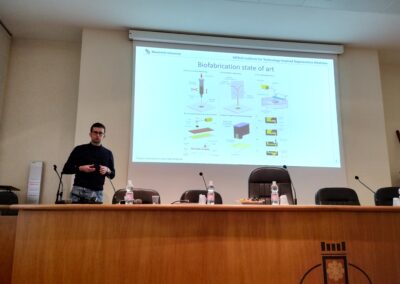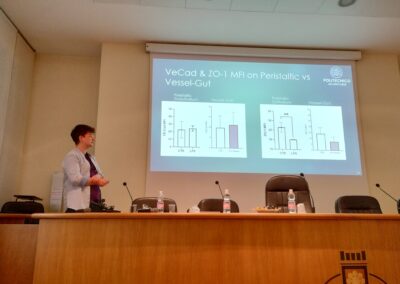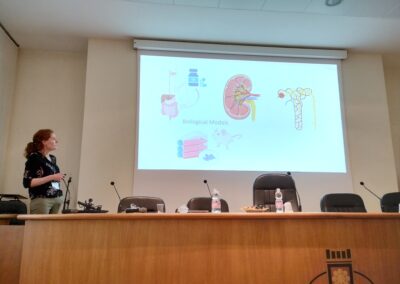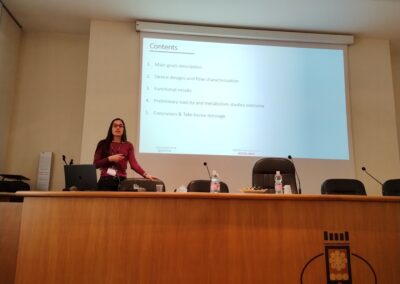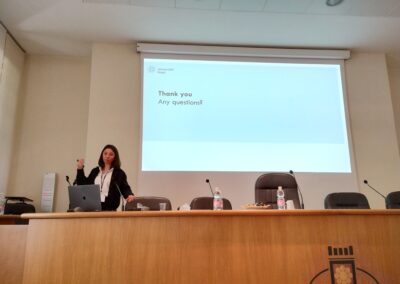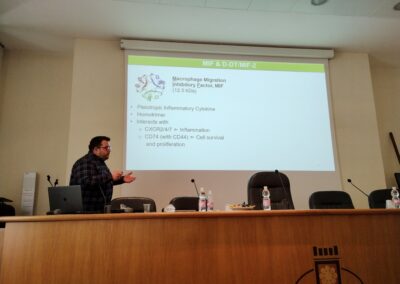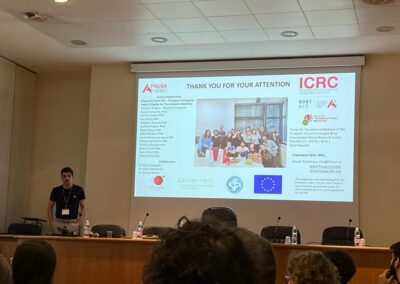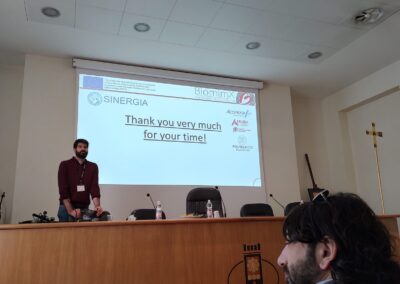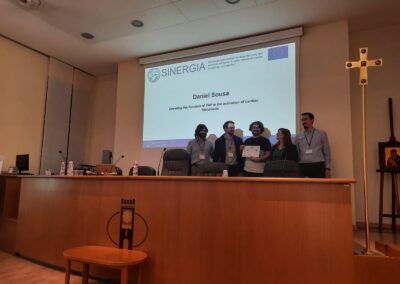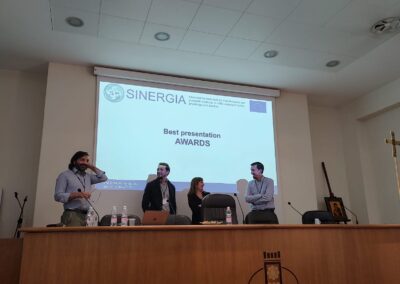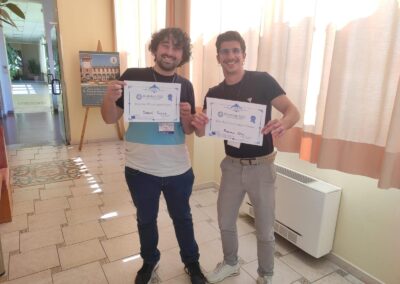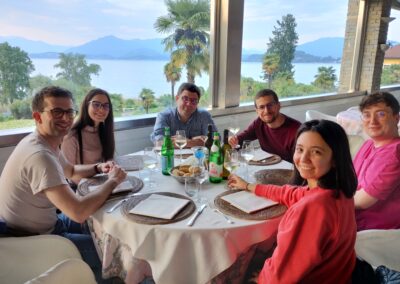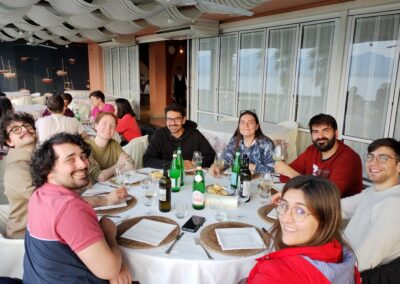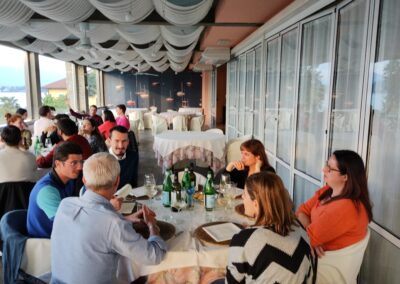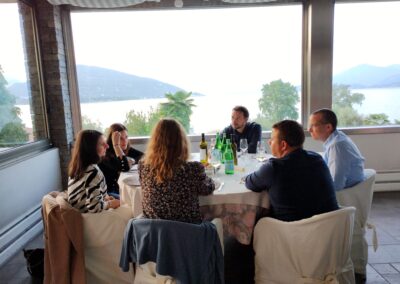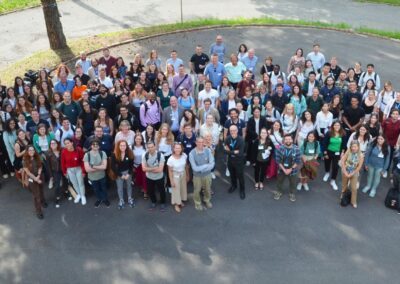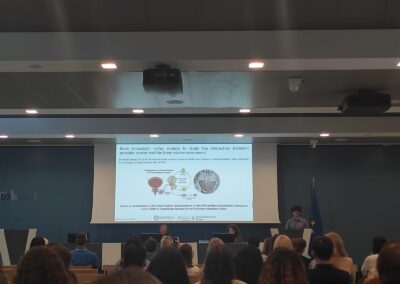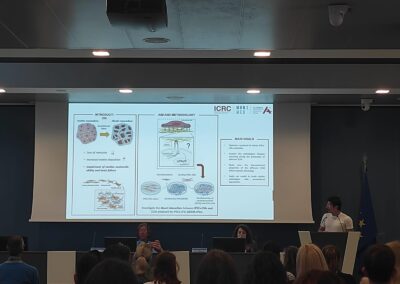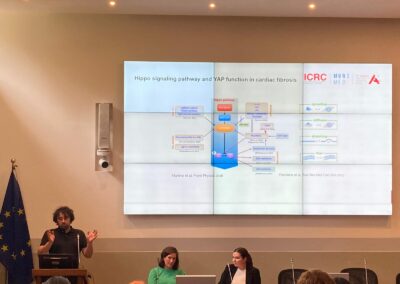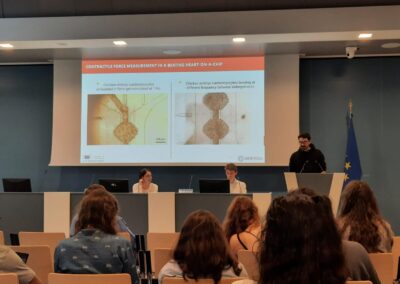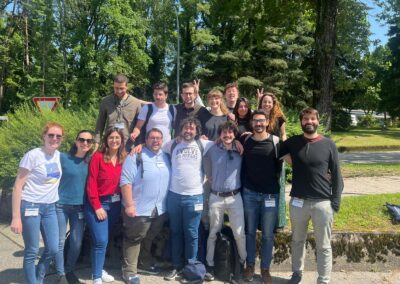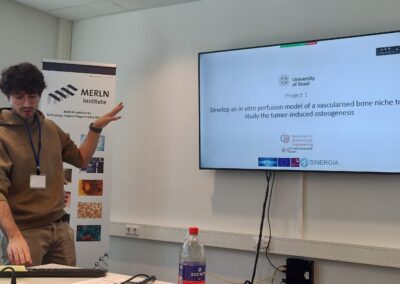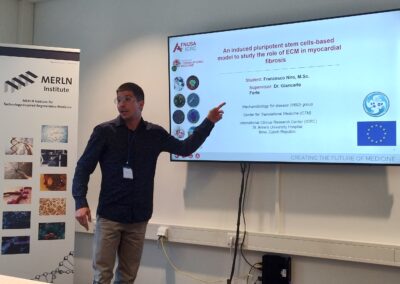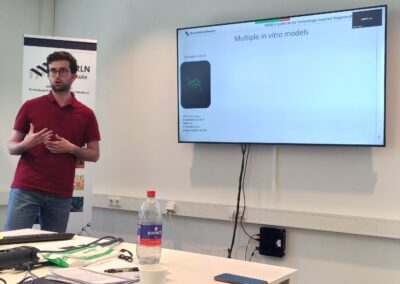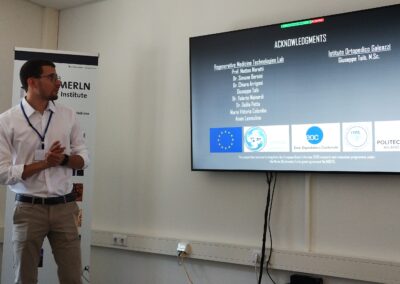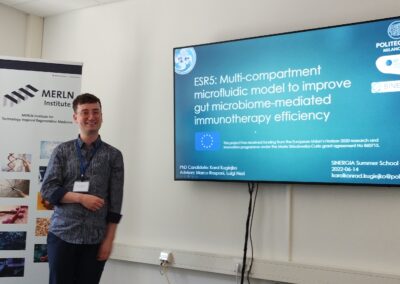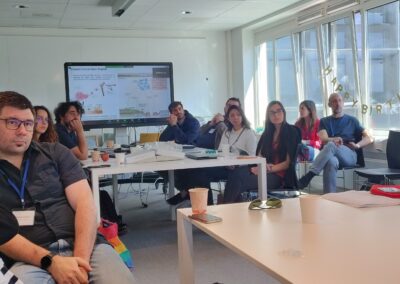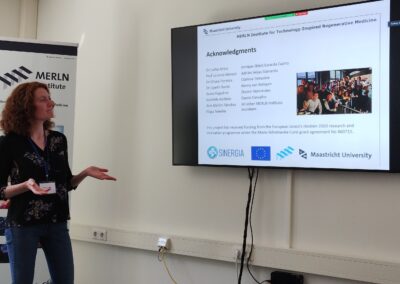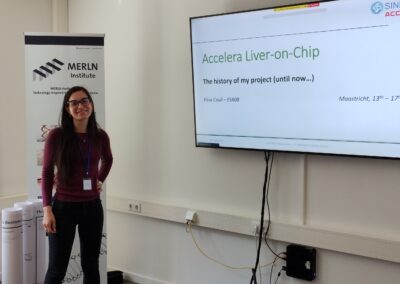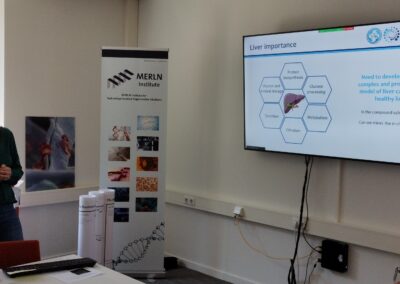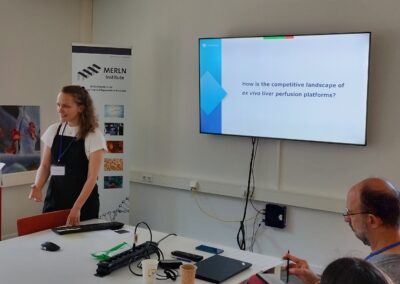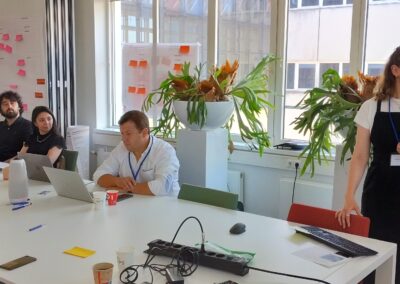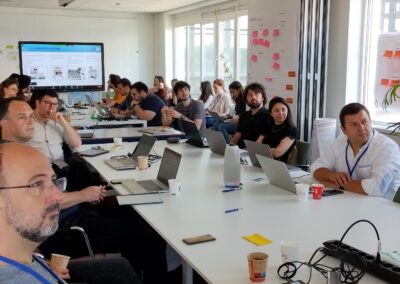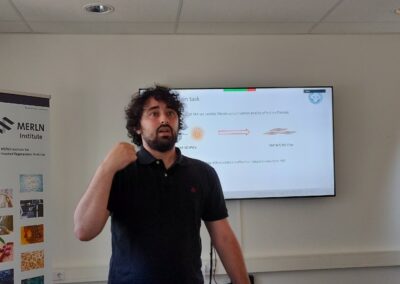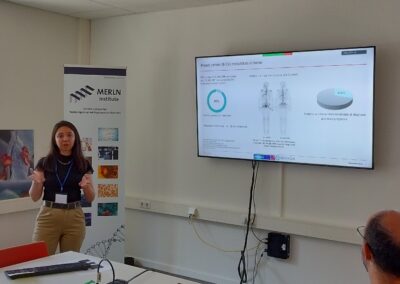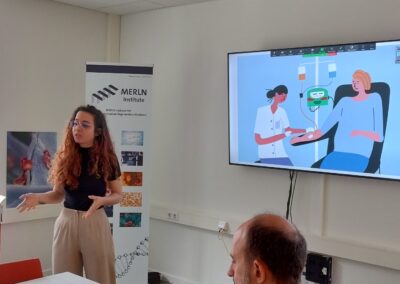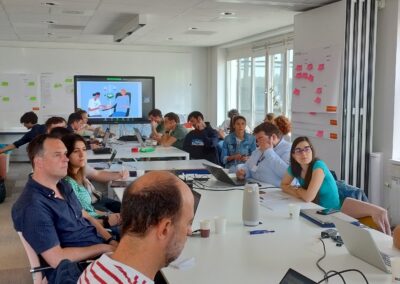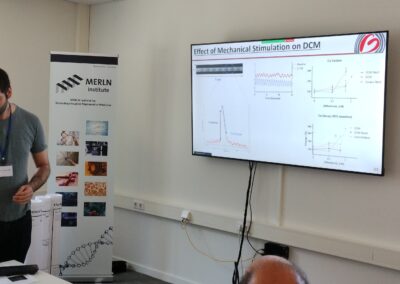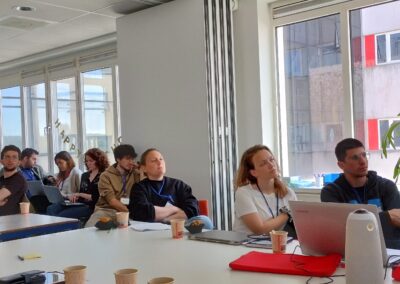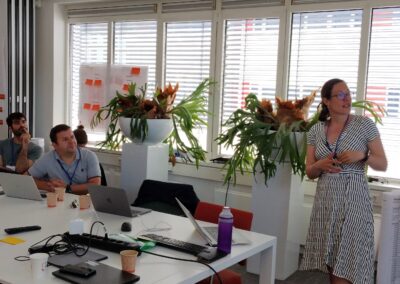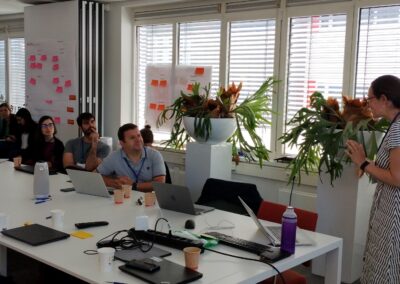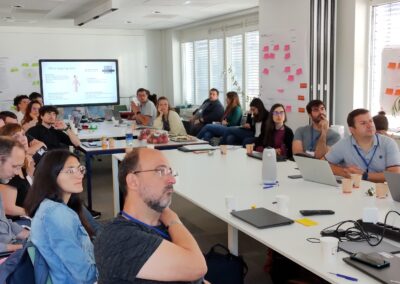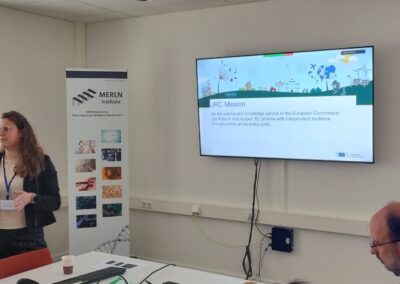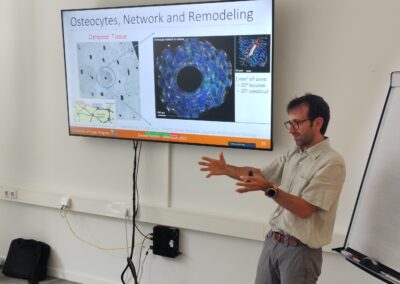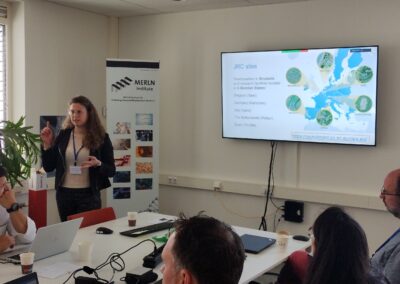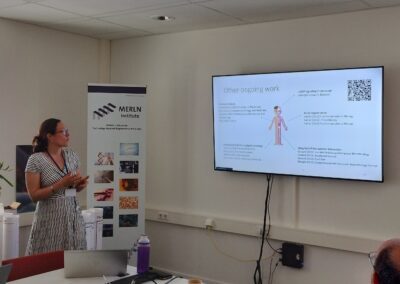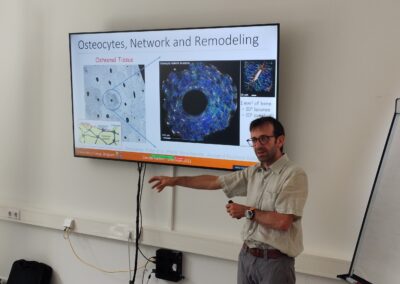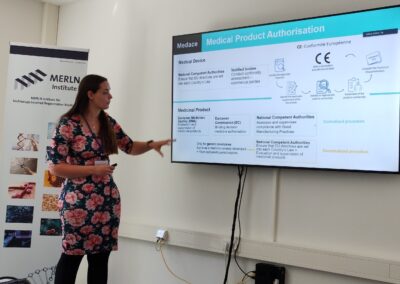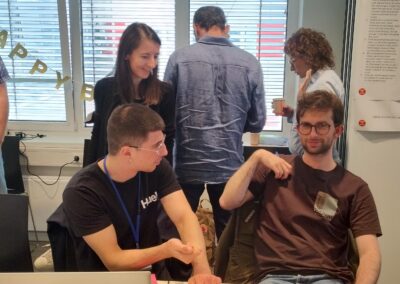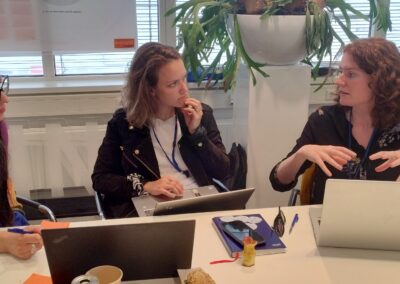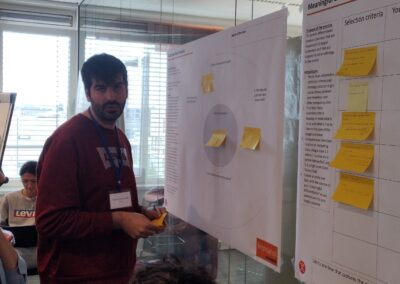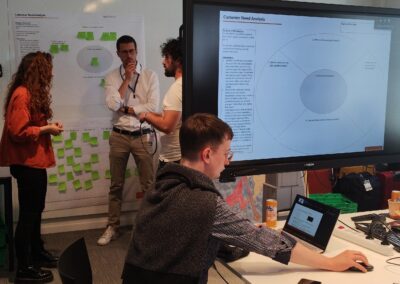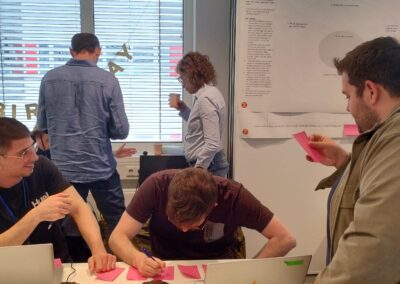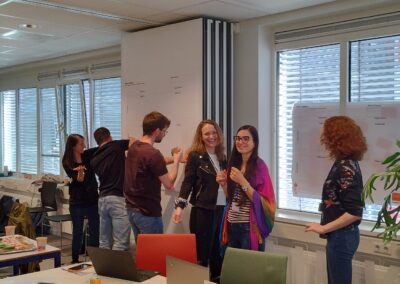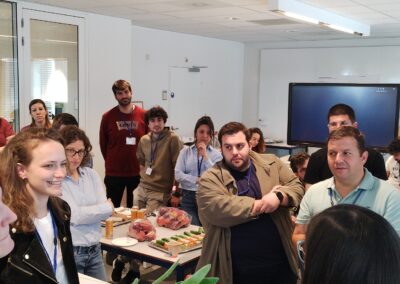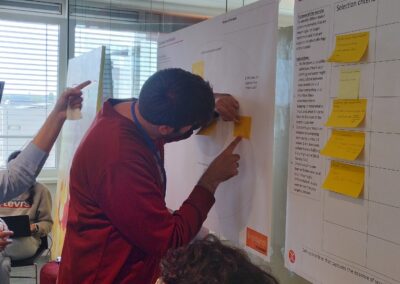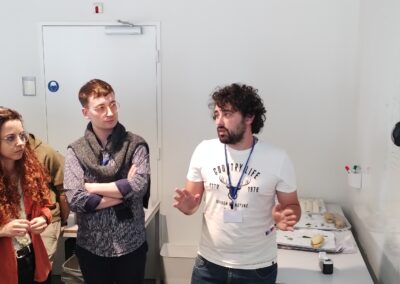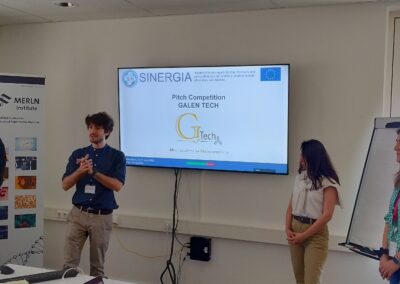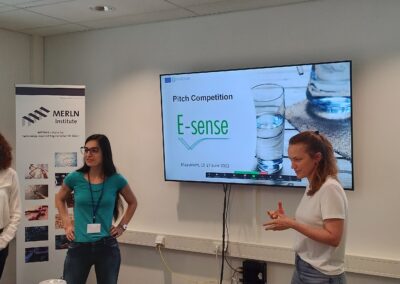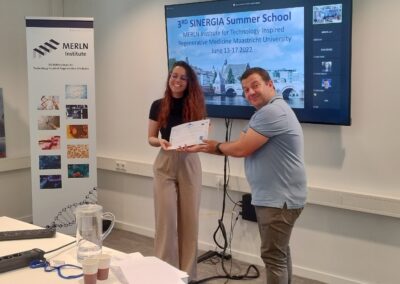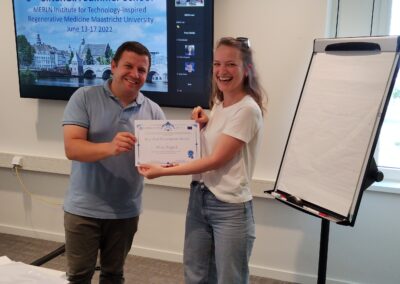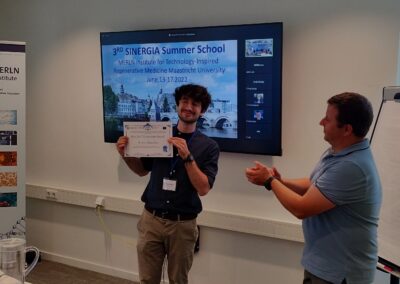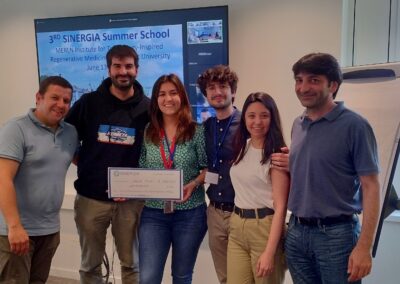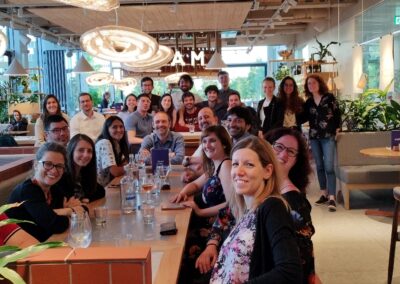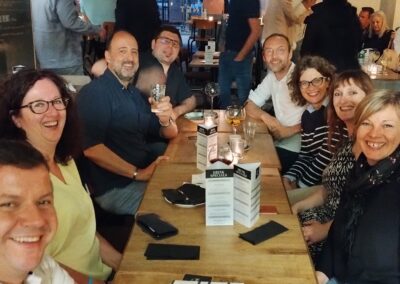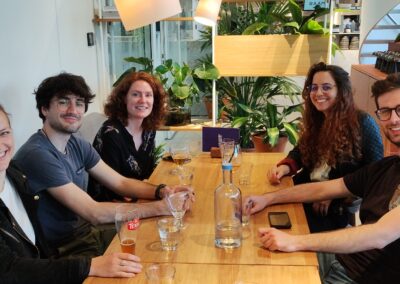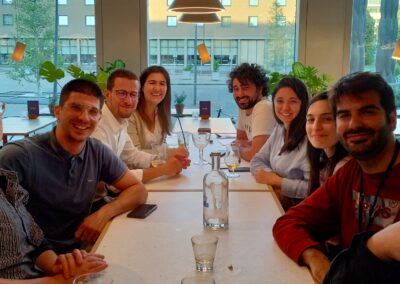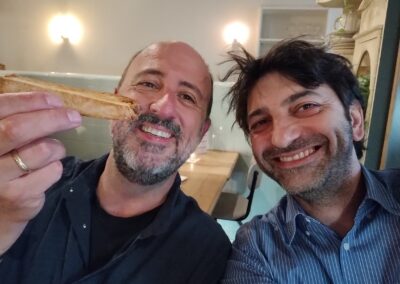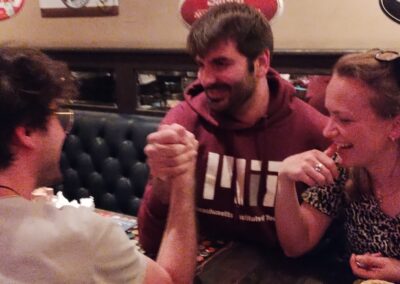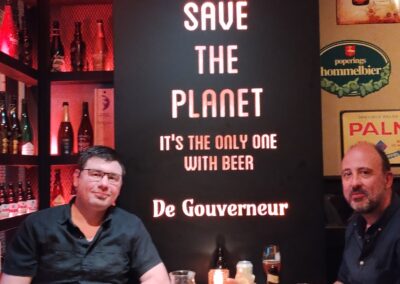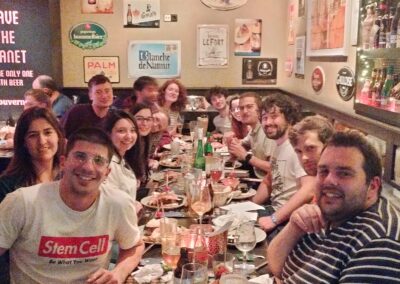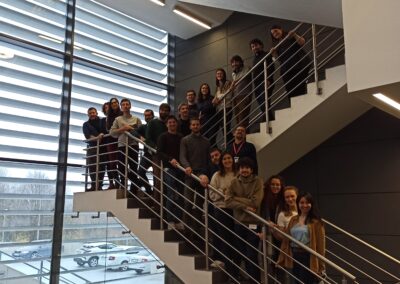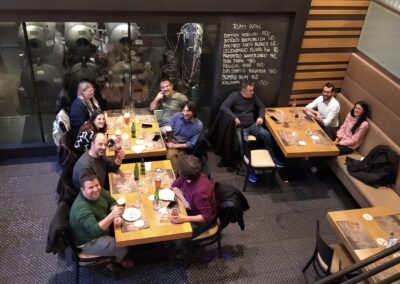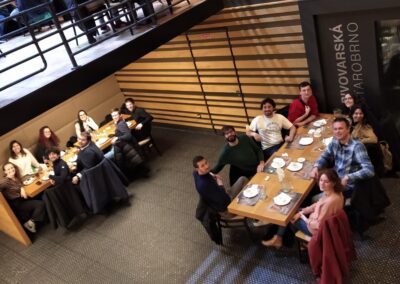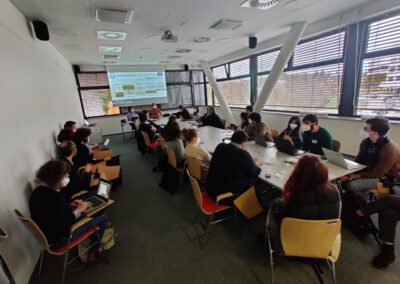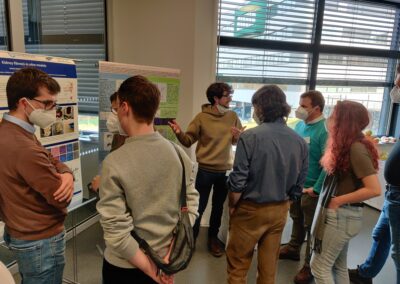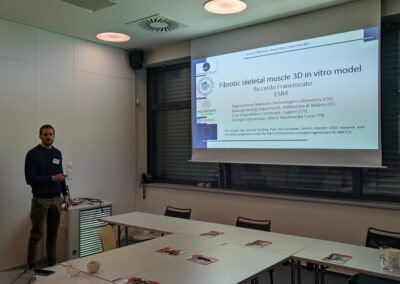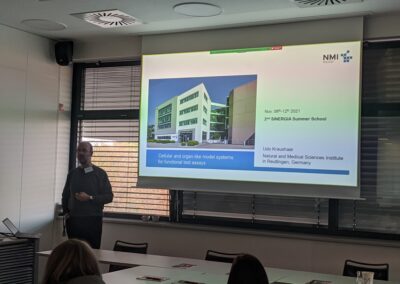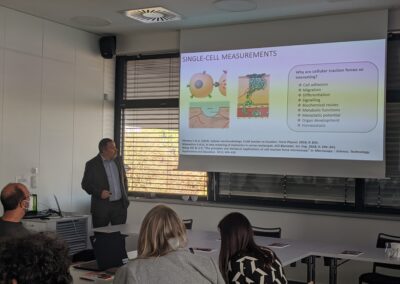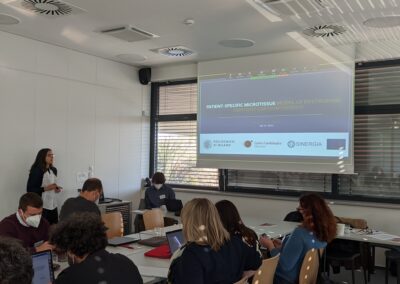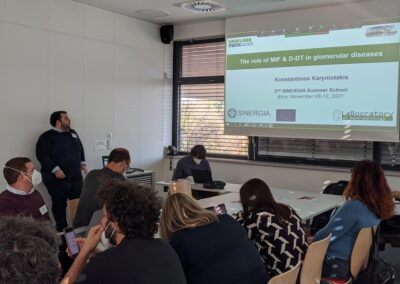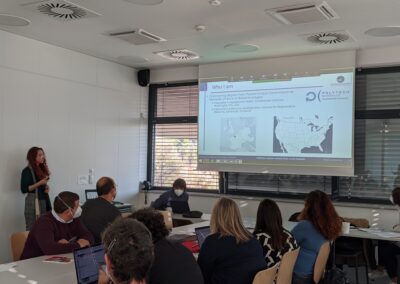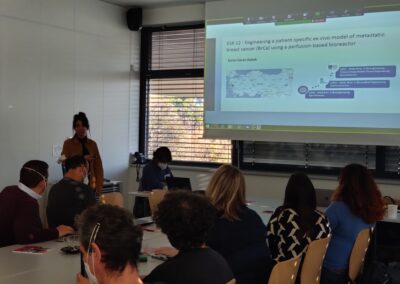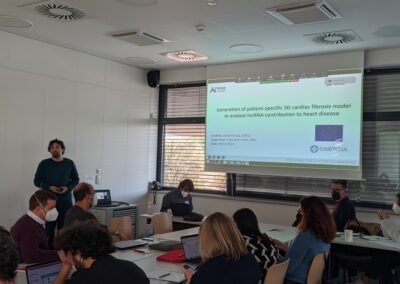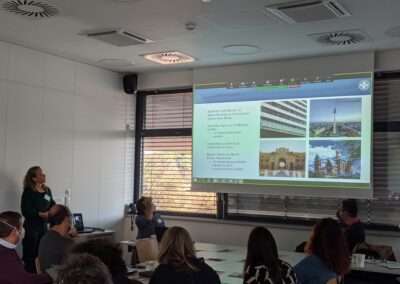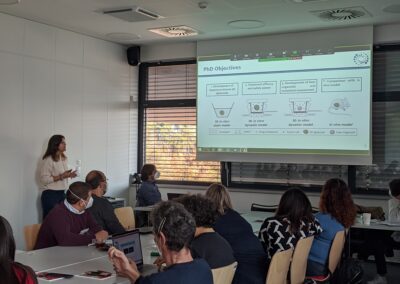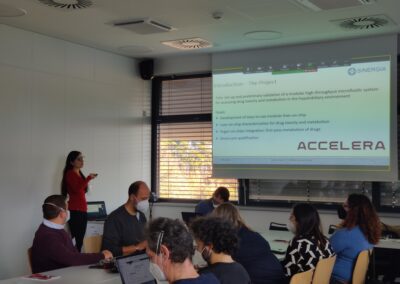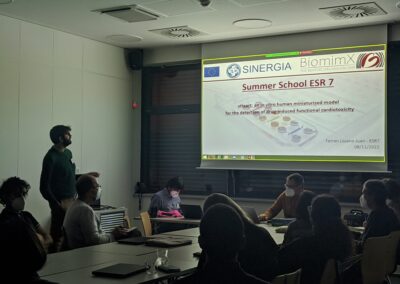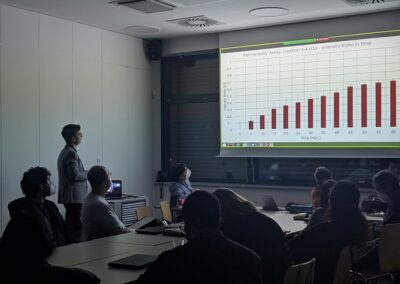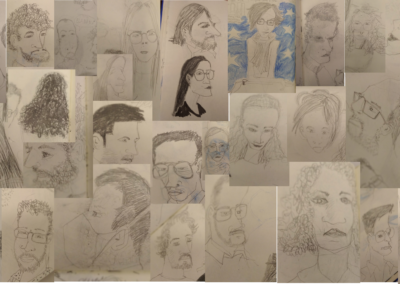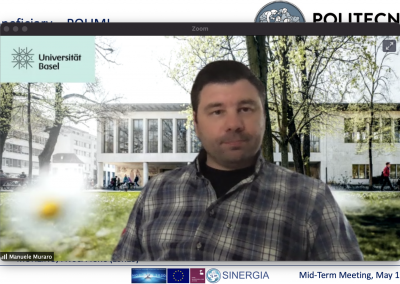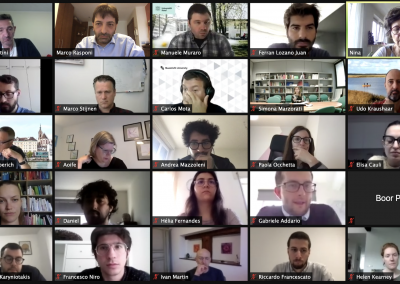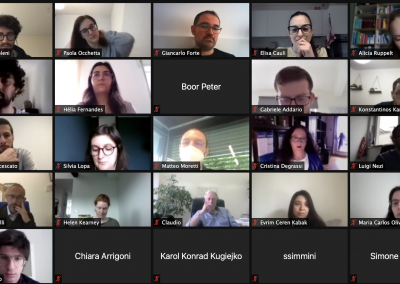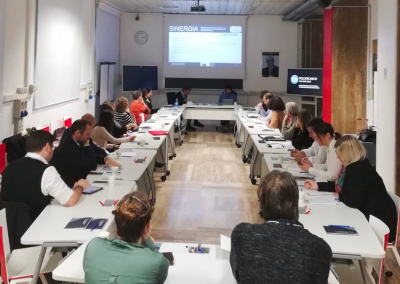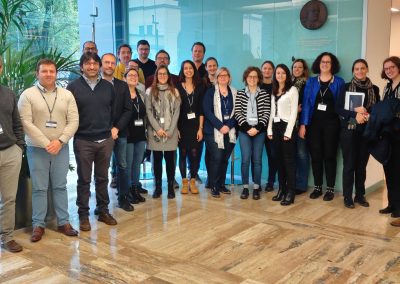Networkwide Events
SINERGIA Workshop 2023 (21-22 May 2023, Ispra, Italy)
The final SINERGIA Workshop took place in Ispra (Italy) on the Lago Maggiore on 21-22 May 2023. On Sunday 21st students met and got together, visiting the Museum of the Rocca di Angera, followed by a Social DInner. Monday 22nd, ESRs presented their projects in a closed session, in front of their supervisors. After lunch, the Workshop opened to all students. Dr Andrea Pavesi (from the Institute of Molecular and Cell Biology, A*STAR, Singapore) gave a keynote lecture on “How immunocompetent micro-physiological systems can play a role in better understanding the tumor microenvironment. A story from bench to bedside and from lab to market”, which was followed by a poster session. Before the closing aperitif, an informal ceremony was held, where best presentations prizes were awarded to Francesco Niro (1st place), Evrim Ceren Kabak (2nd place) and Daniel Pereira Sousa (3rd place).
Noteworthy, the Workshop preceded the Summer School on Non-animal Approaches in Science (23-26 May 2023), which is organized by the European Commission’s Joint Research Centre and its EU Reference Laboratory for Alternatives to Animal Testing (EURL ECVAM), and that all SINERGIA students will attend.
Venue and getting together
ESRs presentations
Third SINERGIA School (13-17 June 2022, Maastricht, The Netherlands)
The event was held in the MERLN Institute for Technology-Inspired Regenerative Medicine at the Maastricht University, and organized by Prof. Carlos Mota. The School offered 5 days of fantastic lectures, each dedicated to a specific topic. On Monday 13th, the topic was “Bioreactor systems for clinical graft manufacturing”, with lectures from Olga Goor (Business Developer Brightlands) and Stefania Adele Riboldi (Dialybrid). Day 2 focused on “New drug development and regenerative strategies: from research to market”, with lectures given by Danielle Curfs (Medace) and Kim Frederix (Innoser). Wednesdsay was dedicated to “In silico drug design and efficacy predictions” with lectures of Aurélie Carlier (Maastricht University) and Lisane Blauw. On Thursday, after a workshop on Bioprinting (MERLN labs), Monica Piergiovanni (European Commission, Joint Research Centre) gave a perspective on the day’s topic “Validation and alternative methods”. Last day focused on “Entrepreneurship and IPR”, and Davide Ruffoni (University of Liege) gave the final lecture.
During the school, daily workshops were organized to give ESRs basic knowledge on business modeling, IPR, market value and pitching. ESRs teamed up in 4 groups, and a final pitch competition event was organized on Friday afternoon. Moreover, during the school, all ESRs had the chance to give oral talks to present their scientific advancements. For both pitch competition and scientific oral presentations monetary prizes were offered to the best performers.
ESRs presentations
Lectures
Pitch competition training activities
Leisure
Second SINERGIA School (4-9 November 2021, Brno, Czech Republic)
The event was hosted in Dr. Giancarlo Forte’s lab, the Center for Translational Medicine of Brno, Czech Republic. The School allowed for the first in person meeting between the early-stage researchers (ESRs) and the supervisors of the network, allowing better scientific and social interaction. Indeed, ESRs through oral and poster presentations showed the data they obtained during the first year of their PhD, having the opportunity to discuss them, and receive feedback and suggestions from researchers with different backgrounds. The lectures attended in the field of in vitro models and scientific dissemination offered a further opportunity for the personal growth of the ESRs. Finally, the social dinner and the leisure activities strengthened the emotional bond between the students and supervisors.
First SINERGIA School (11-14 May 2021, Basel, Switzerland)
The 1st SINERGIA Summer School was held online due to the pandemic restrictions. It was organized by the ESR1 and ESR12 from the University of Basel under the supervision of Dr. Manuele Giuseppe Muraro. The school started with a mid-term meeting, where all the ESRs met the Project Officer and introduced themselves and their projects. During this session, the project officer gave a detailed and clear picture of the administration procedure including research declarations, grant agreement provisions awareness and working conditions. The mid-term session was followed by lectures on cutting-edge strategies in the tissue engineering field. The coffee breaks during lectures were blended with the talks of ESRs about the scientific progress of their project. It was a significant opportunity for ESRs to get feedback from talented scientists with a distinct range of expertise levels. Moreover, the ESRs could socialize and get to know each other on a personal level over leisure time. Despite the social barrier of the pandemic situation, the school managed to serve the purpose of creating a network for ESRs both on a personal and professional level. It helped generate a friendly environment, which could be further improved in the following summer schools.
Meetings
Kick-off Meeting (6-7 November 2019, Politecnico di Milano, Italy)
Webinars
13th April 2022. The webinar presented by Francesca Taraballi was a full immersion in the nanotechnologies’ world. Starting from an overview of the origin of this technology, the challenges the nanotools must face in the human body were highlighted along with the numerous applications these advanced strategies can have. Thanks to this webinar, awareness was gained regarding the importance of the nanotechnologies that, mimic the nature around us, can help in solving significant issues like that of COVID-19.
15th September 2021. During the 3rd webinar, that was present by Prof. Bart Spee, we had the opportunity to get acquainted with the novel technology of advanced in vitro models, and more specifically of liver organoids. After a comprehensive introduction of this technology, we focused on the implementation of various bioengineering tools, that contain, organoids, multipotent and pluripotent stem cells, in the treatment of liver diseases. Overall, this webinar enabled us to broaden our horizons on how we can mimic diverse human diseases, using alternative models other than in vivo studies, and to gain new impulses for our own research.
21st April 2021. The webinar presented in a very straightforward marrer by Dr. Marco Viganò and Dr. Carlotta Perucca Orfei was focused on the intriguing potential of Pulsed Electromagnetic Fields (PEMFs) for the treatment of Musculoskeletal Disorders. Dr. Perucca Orfei introduced the different strategies to apply electromagnetic forces to the bone cartilage. She also focused on the molecular pathways her group is studying with in vitro and in vivo experiments, and she cited the interesting JOCARE project, which is committed to evaluate the efficiency of PEMFs treatment for chondral lesions. Dr. Viganò introduced the application of PEMFs to the tendinopathies context and showed the preliminary results he and his group have achieved demonstrating a tendon structure positive reorganization following their specific protocol of stimulation. Thanks to this webinar, the SINERGIA ESRs were exposed to the promising field of PEMFs application for the improvement of the healing process in cartilage and tendon.
20th Jenuary 2021. The Webinar given by Prof. Paul Bourgine introduced us to hOssicles, an advanced three-dimensional model to study bone development and hematopoiesis. This human-based model is a promising solution to overcome the difficulties in the translation from animals to humans, currently observed in preclinical research. The webinar introduced us to the developmental process of a new model, from its concept until validation. Moreover, it showed us that a model can be designed for one application (in this case healthy and malignant human hematopoiesis), but still be useful or adaptable to answer other important diseases such as Acute Myeloid Leukemia.
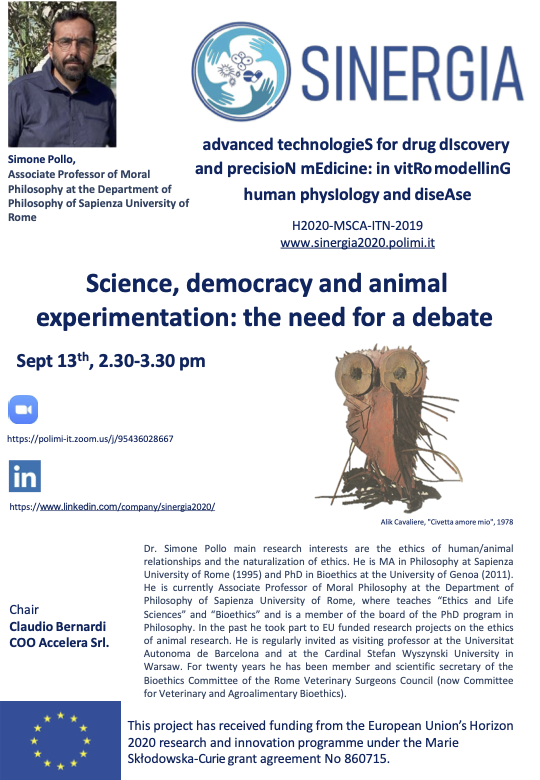
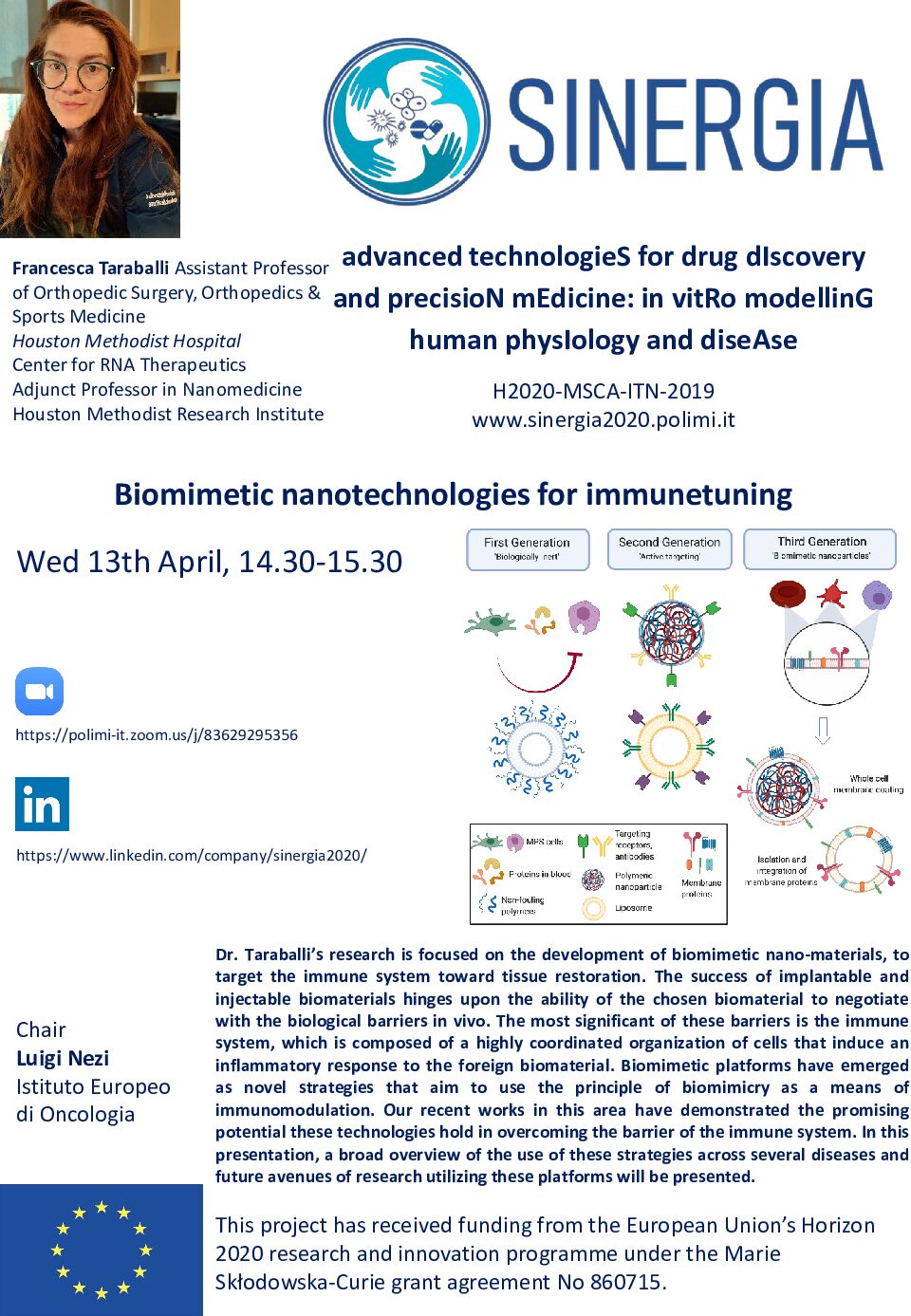
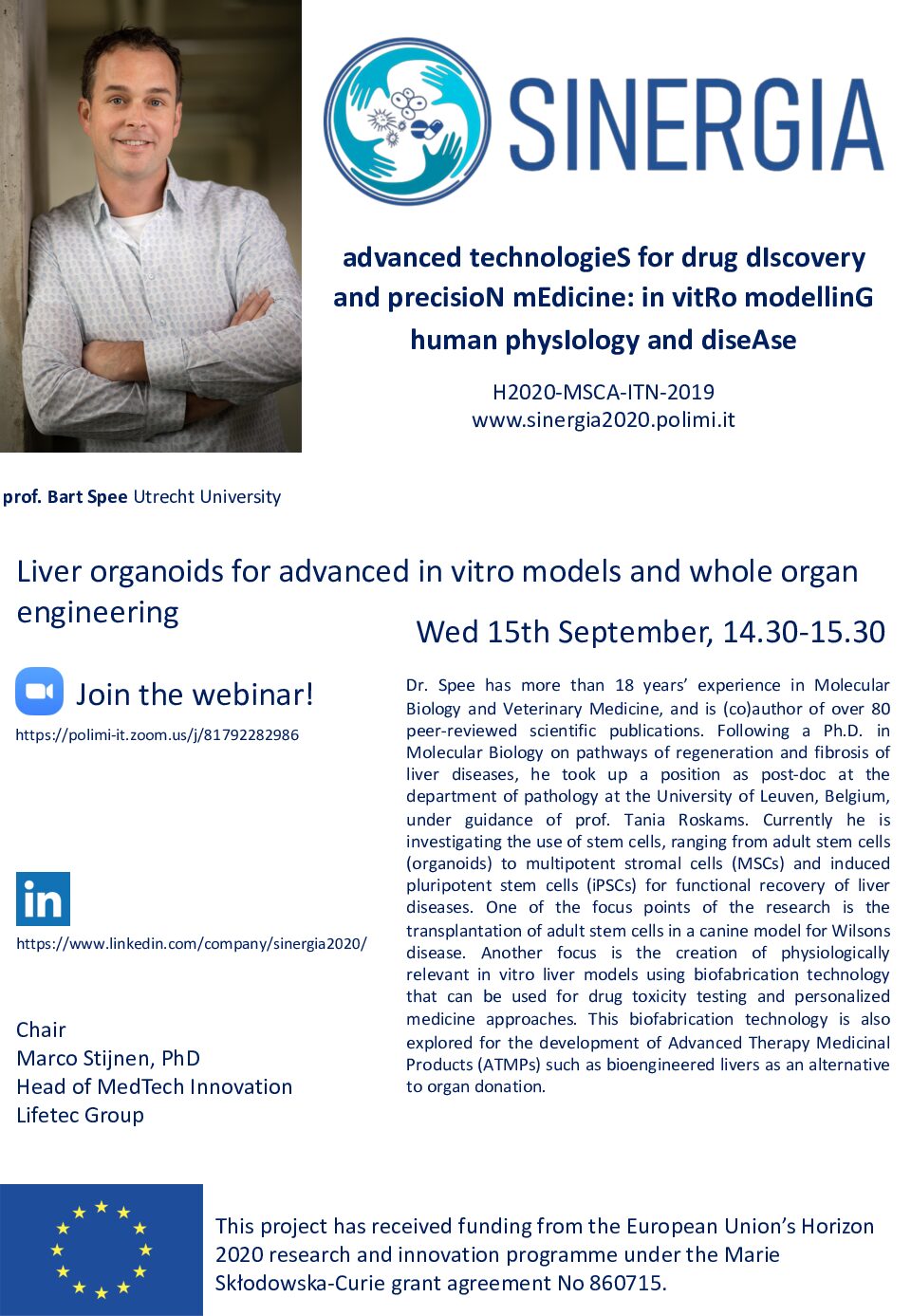
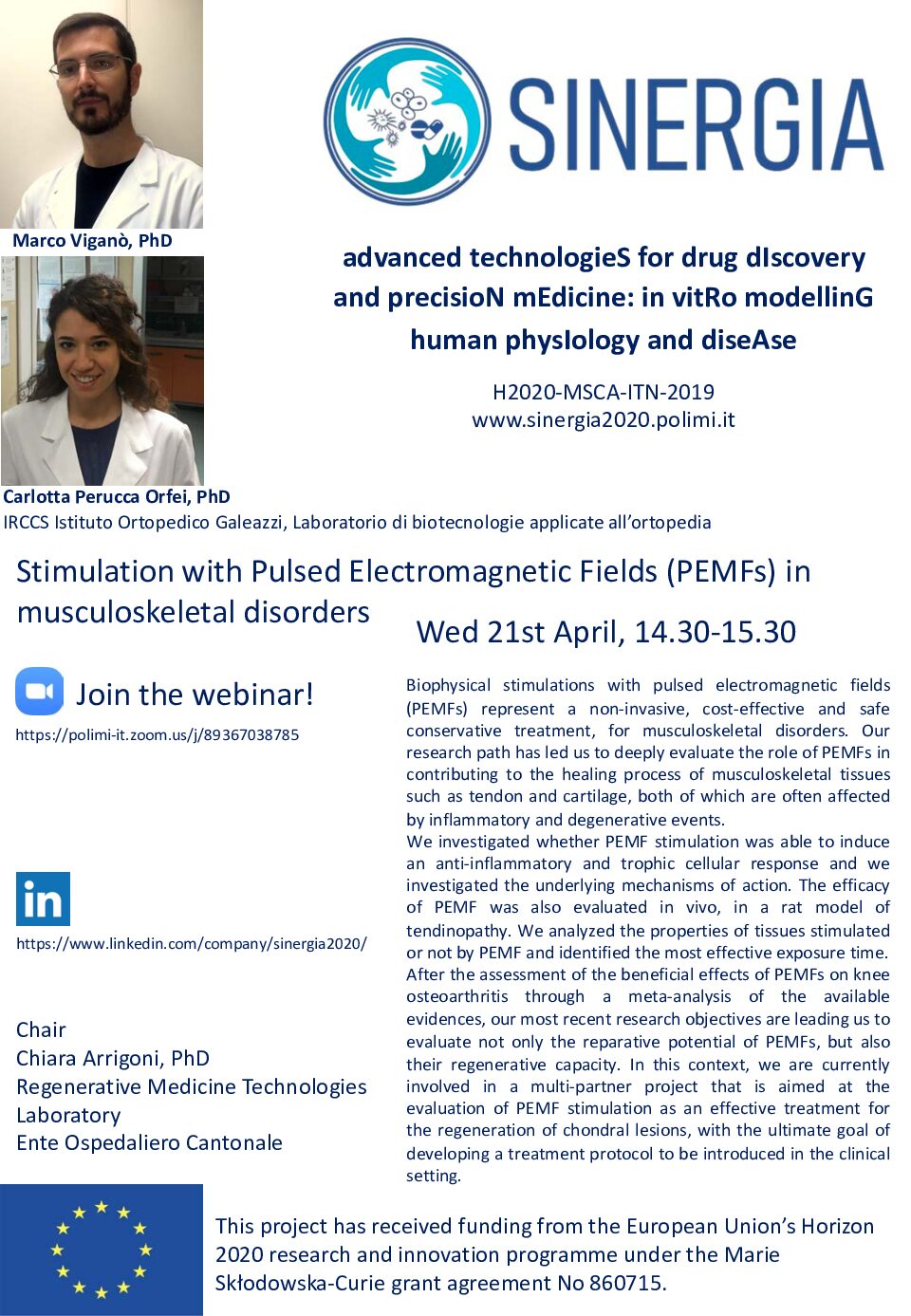
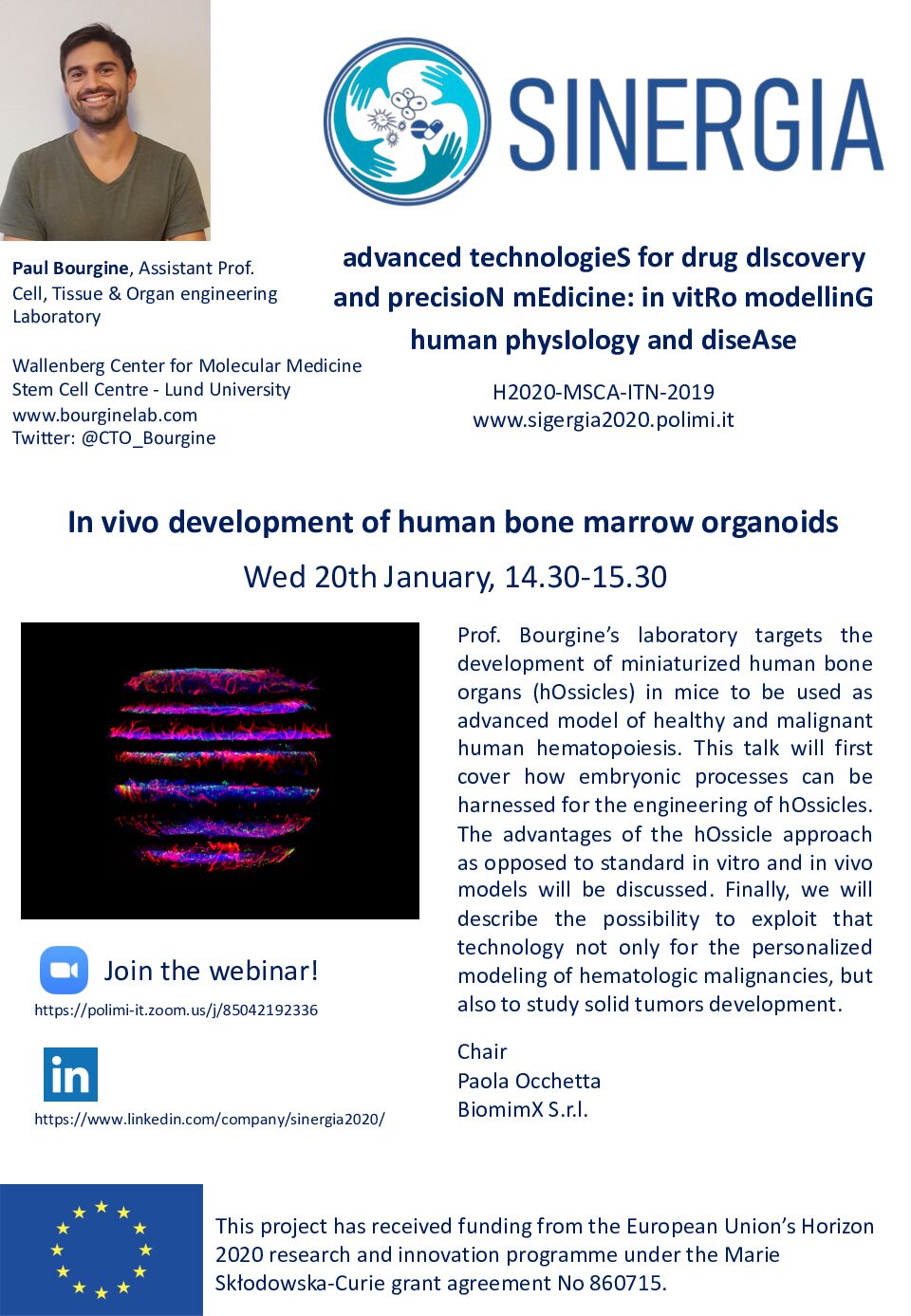
Journal Clubs
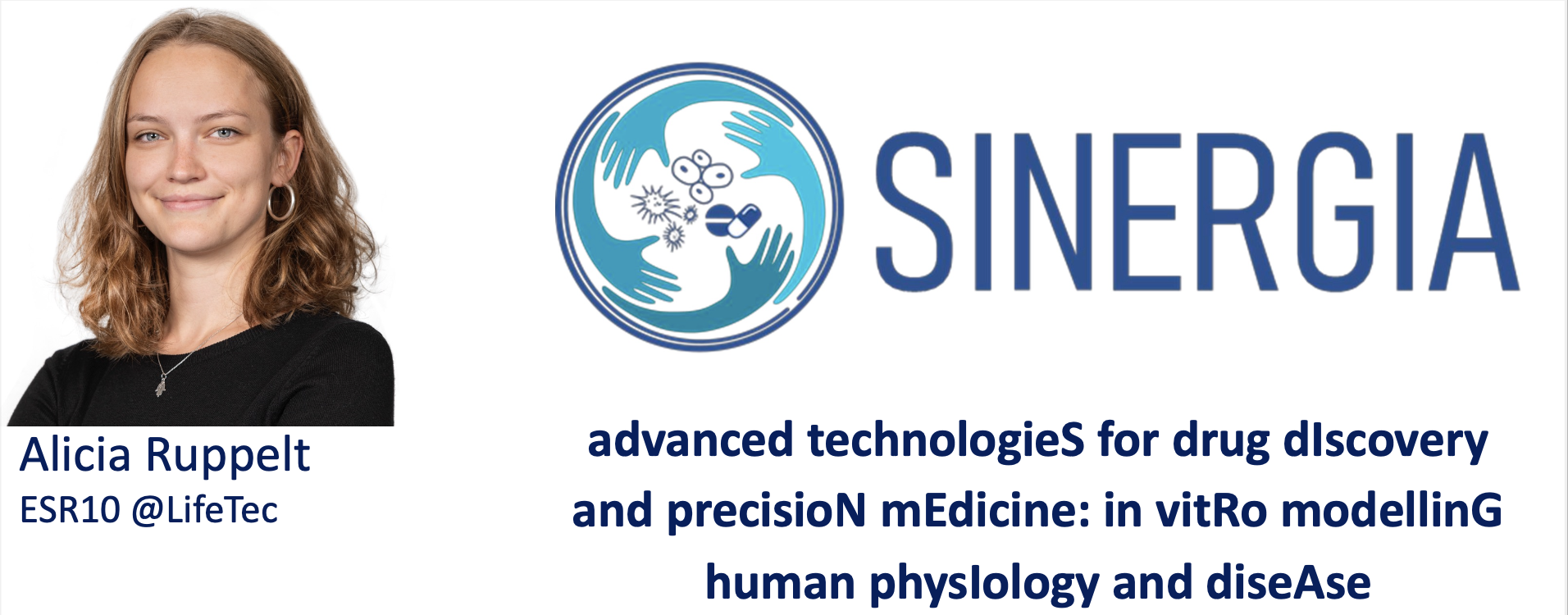
Wed 18th January 2023, 14.30-15.30
“Cholangiocyte organoids can repair bile ducts after transplantation in the human liver”
Sampaziotis et al., 2021, Science
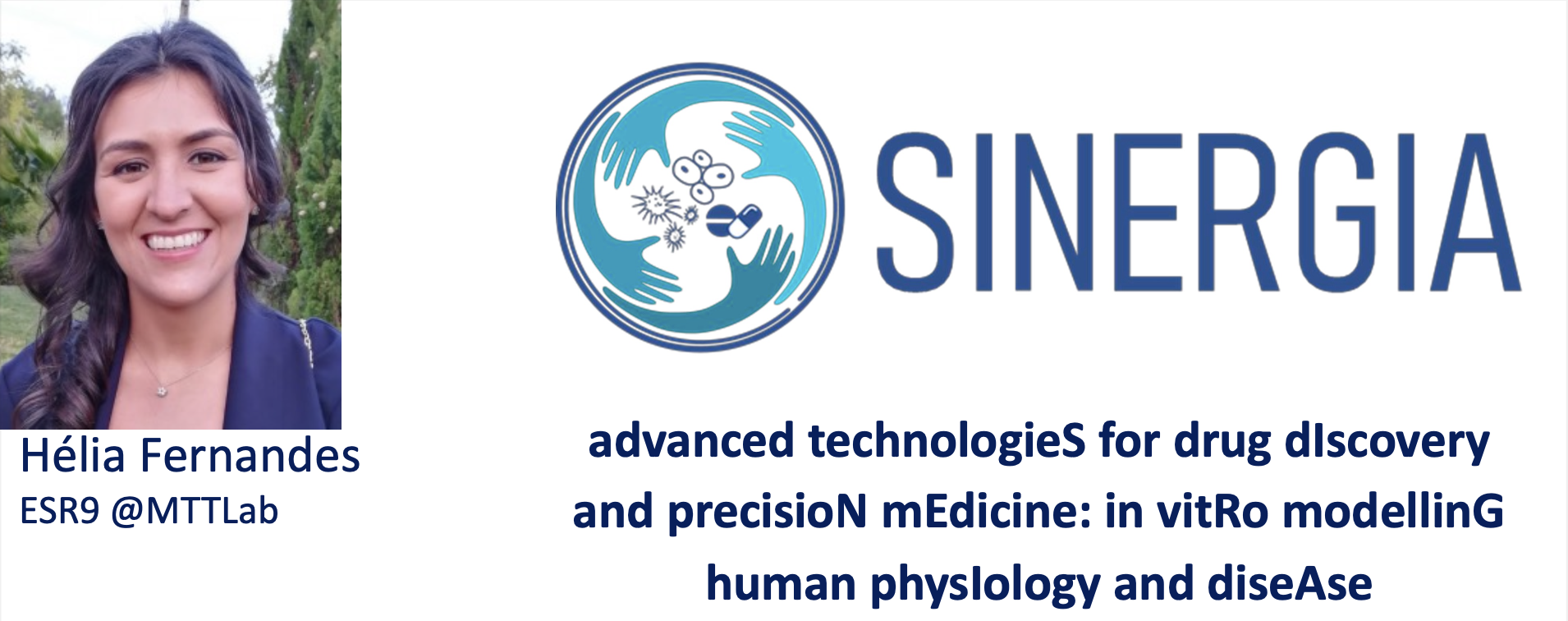
Wed 16th November 2022, 14.30-15.30
“In vitro grafting of hepatic spheroids and organoids on a microfluidic vascular bed”
Bonanini et al., 2022, Angiogenesis
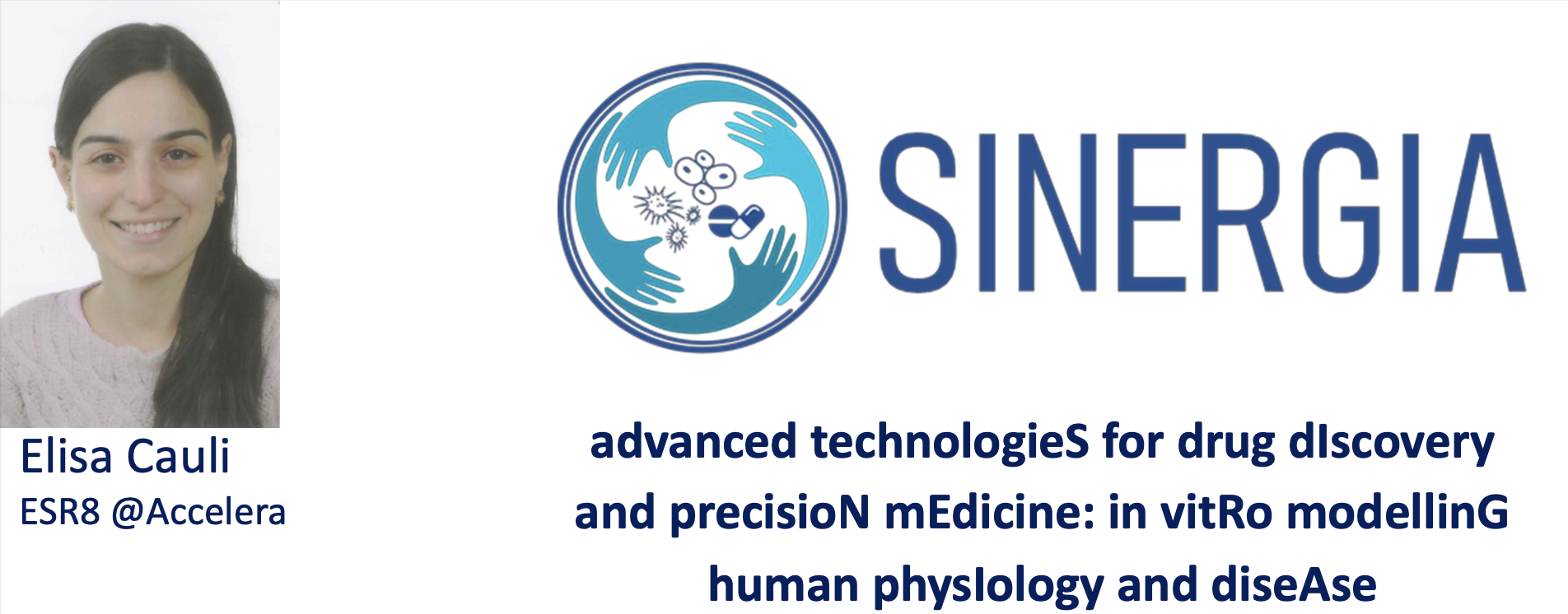
Thu 13th October 2022, 14.30-15.30
“Quantitative prediction of human drug pharmacokinetic responses using multiple vascularized organ chips coupled by fluid transfer”
Herland et al., 2020, Nature Biomedical Engineering
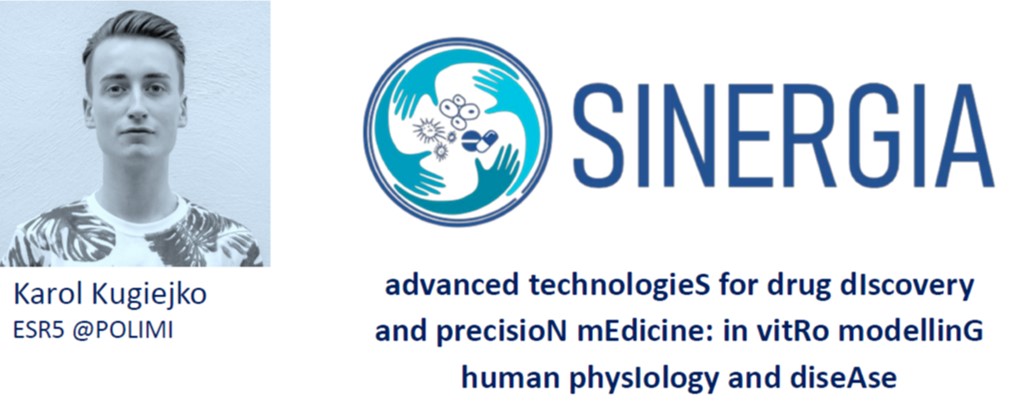
Wed 18th May 2022, 14.30-15.30
“Contributions of the microbiome to intestinal inflammation in a gut-on-a-chip”
Jeon et al., 2022, Nano Covergence
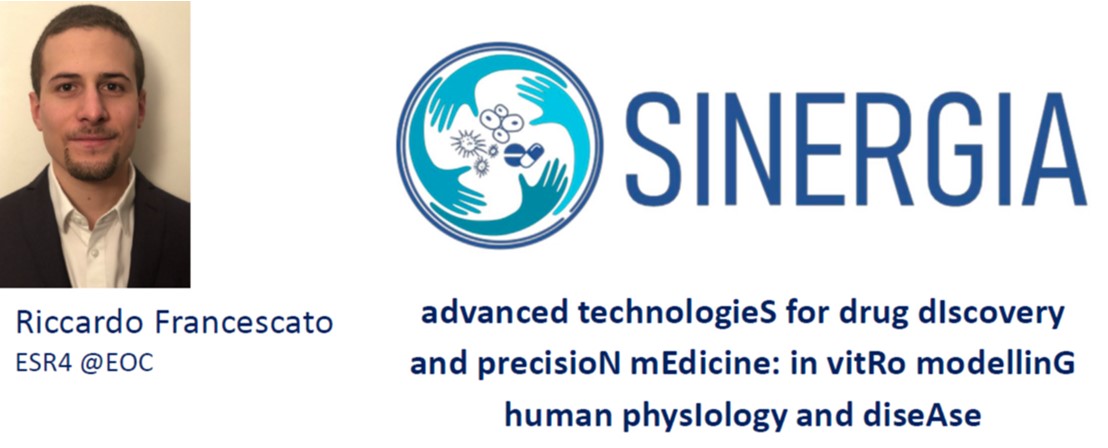
Wed 16th March 2022, 14.30-15.30
“Exercise mimetics and JAK inhibition attenuate IFN-γ–induced wasting in engineered human skeletal muscle”
Chen et al., 2021, Science Advances
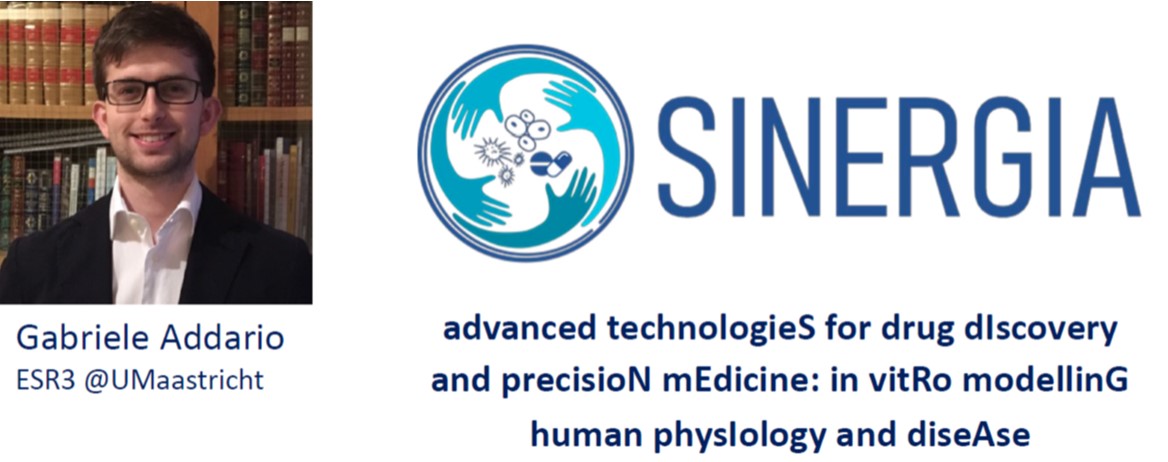
Wed 16th February 2022, 14.30-15.30
“Three-dimensional cell-printing of advanced renal
tubular tissue analogue”
Singh et al., 2020, Biomaterials
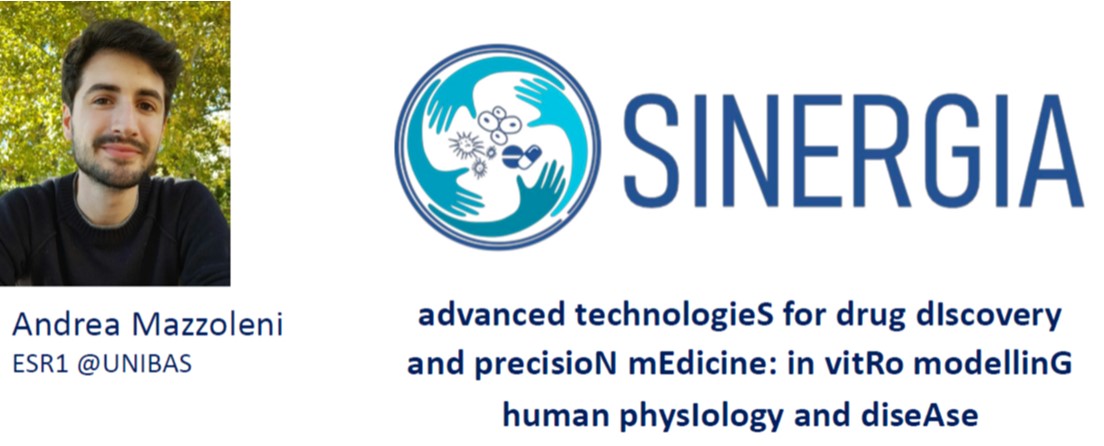
Wed 15th December 2021, 14.30-15.30
“In vitro engineering of a bone metastases model allows for study of the effects of antiandrogen therapies in advanced prostate cancer”
Bock et al., 2021, Science Advances
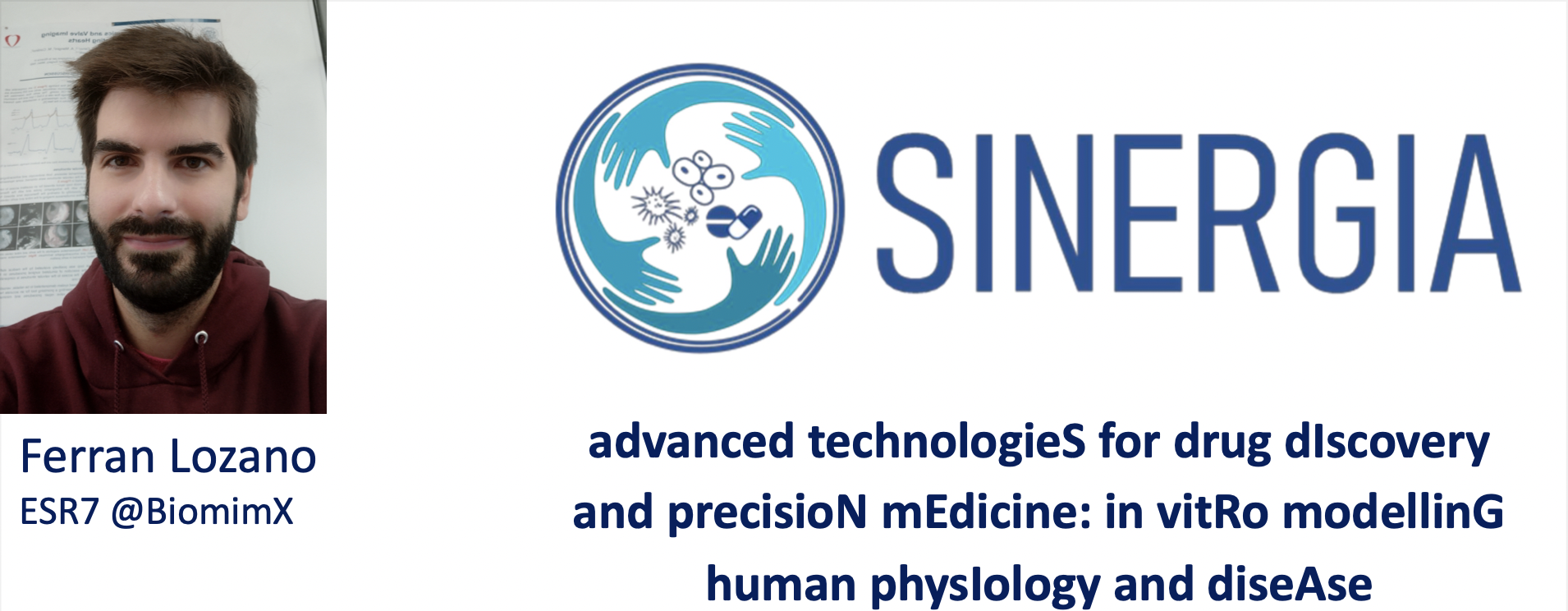
Wed 20th October 2021, 14.30-15.30
“Heart-on-a-Chip Model with Integrated Extra- and Intracellular Bioelectronics for Monitoring Cardiac Electrophysiology under Acute Hypoxia”
Liu et al., 2020, Nano Letters
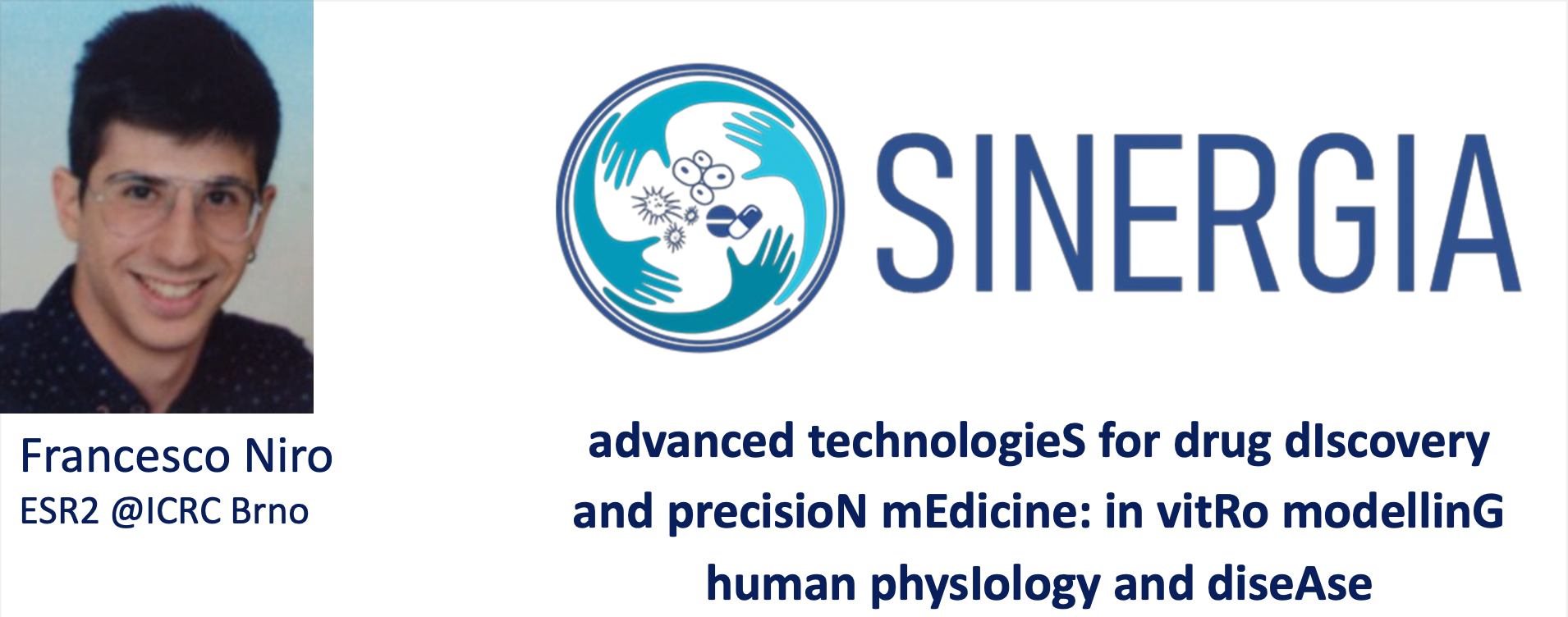
Wed 16th June 2021, 14.30-15.30
“Human-iPSC-Derived Cardiac Stromal Cells Enhance Maturation in 3D Cardiac Microtissues and Reveal Non-cardiomyocyte Contributions to Heart Disease”
Giacomelli et al. 2020, Cell Stem Cell
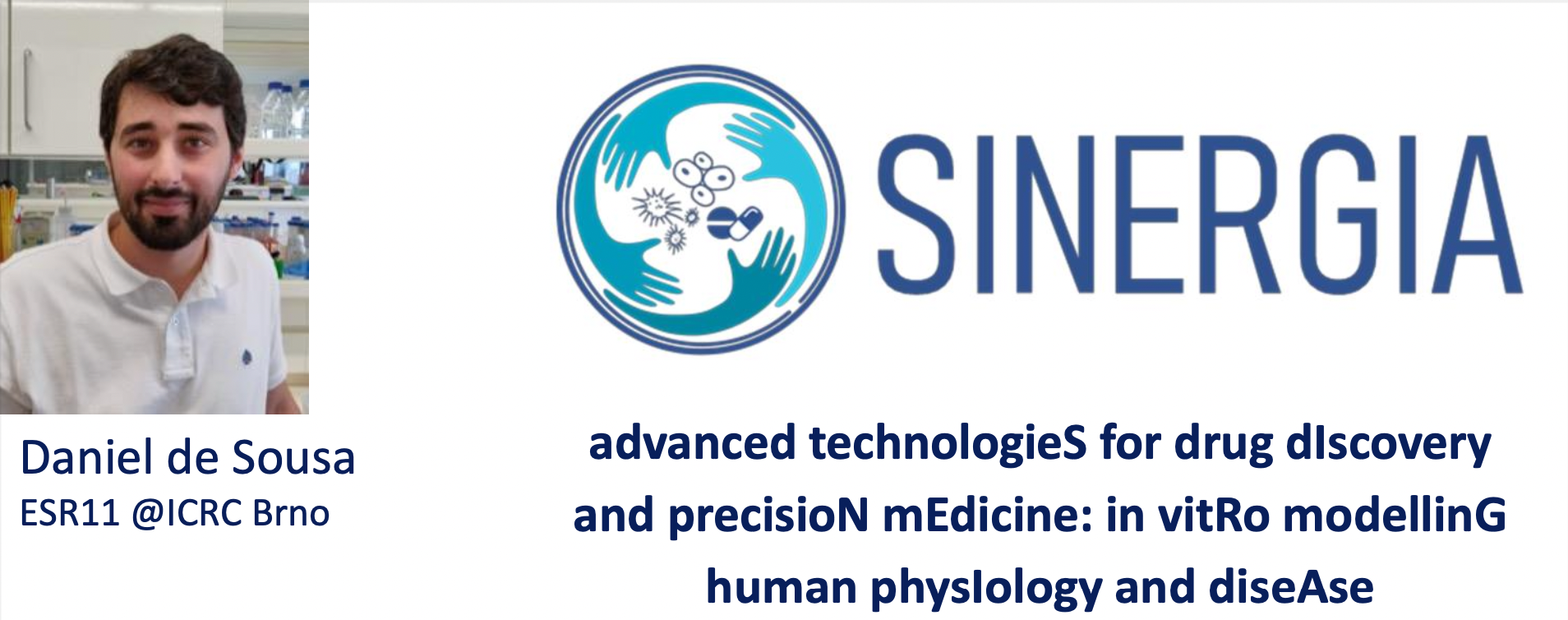
Wed 17th March 2021, 14.30-15.30
“Cells of the adult human heart”
Litviňuková et al., 2020, Nature
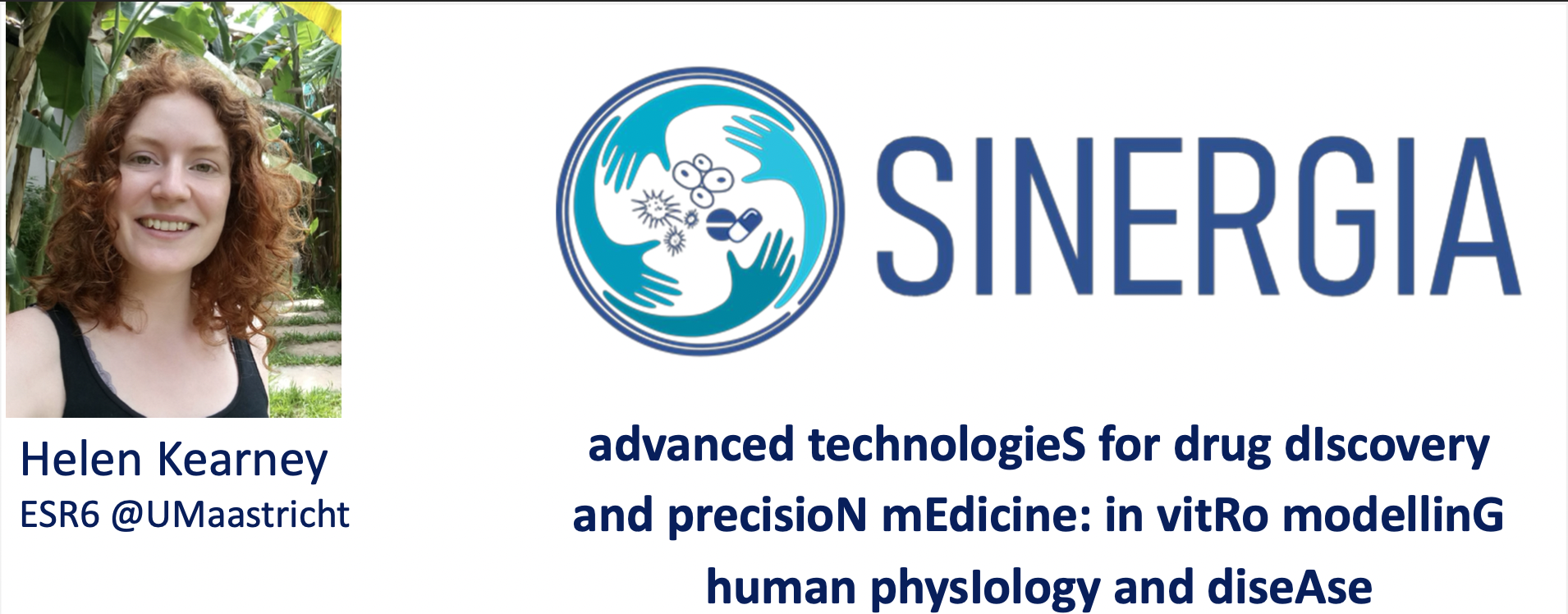
Wed 17th February 2021, 14.30-15.30
“Cellular extrusion bioprinting improves kidney organoid reproducibility and conformation”
Lowlor et al., 2020, Nature Materials
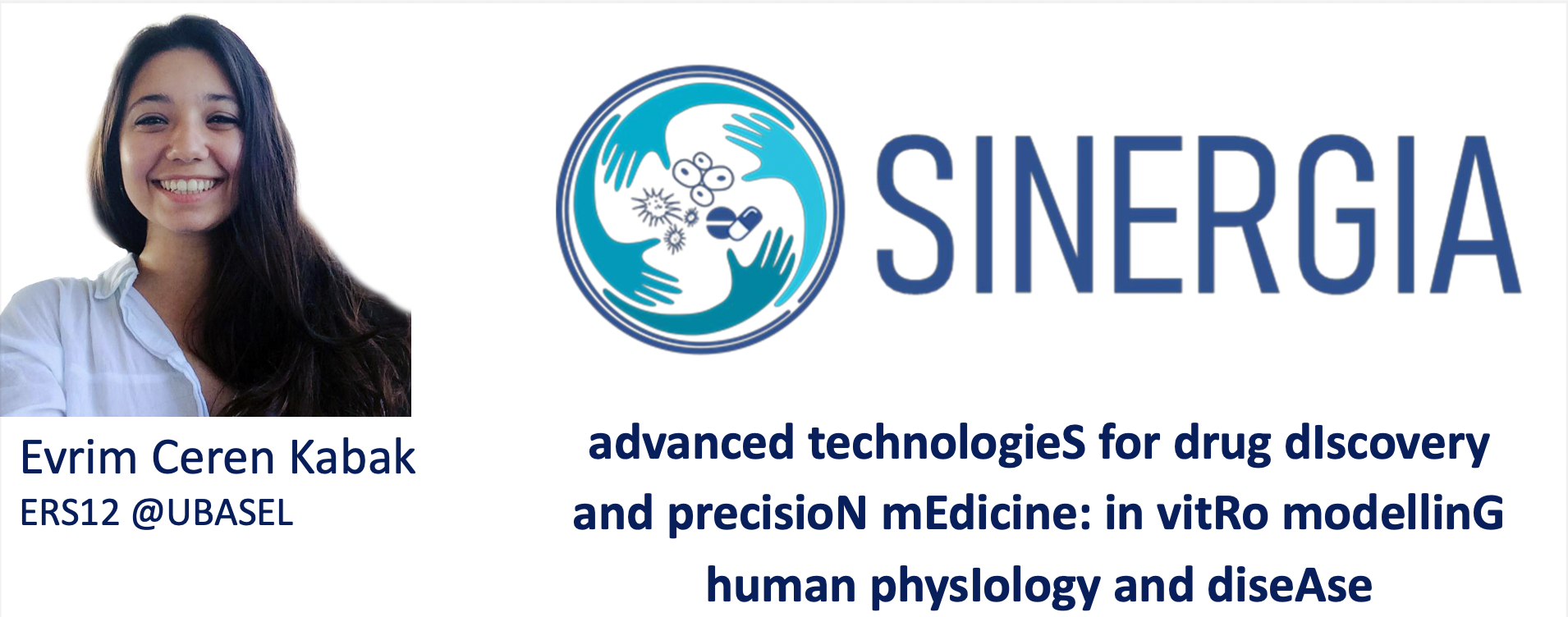
Wed 16th December 2020, 14.30-15.30
“Articular cartilage regeneration by activated skeletal stem cells”
Murphy et al., 2020, Nature letters

